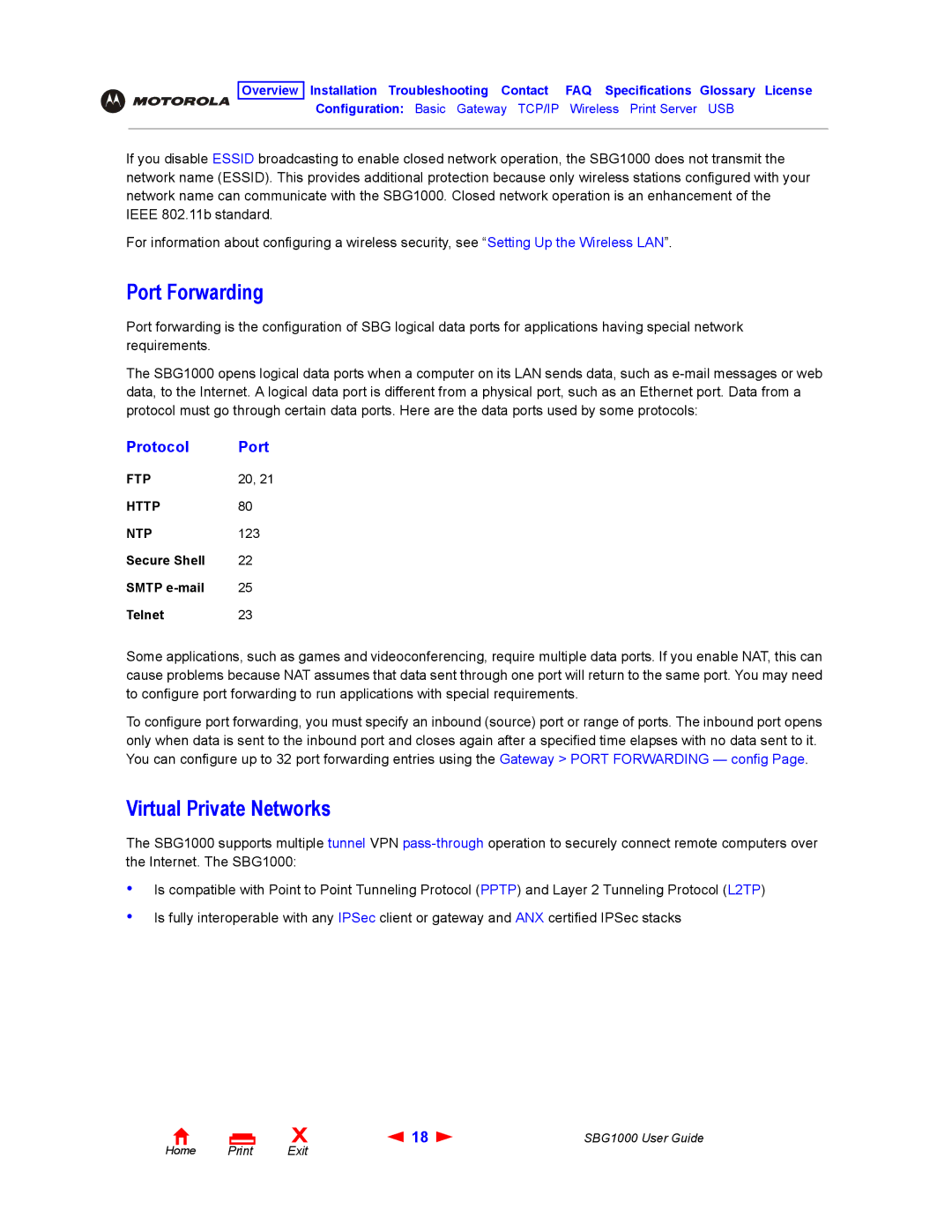
Overview Installation Troubleshooting Contact FAQ Specifications Glossary License
Configuration: Basic Gateway TCP/IP Wireless Print Server USB
If you disable ESSID broadcasting to enable closed network operation, the SBG1000 does not transmit the network name (ESSID). This provides additional protection because only wireless stations configured with your network name can communicate with the SBG1000. Closed network operation is an enhancement of the IEEE 802.11b standard.
For information about configuring a wireless security, see “Setting Up the Wireless LAN”.
Port Forwarding
Port forwarding is the configuration of SBG logical data ports for applications having special network requirements.
The SBG1000 opens logical data ports when a computer on its LAN sends data, such as
Protocol | Port |
FTP | 20, 21 |
HTTP | 80 |
NTP | 123 |
Secure Shell | 22 |
SMTP | 25 |
Telnet | 23 |
Some applications, such as games and videoconferencing, require multiple data ports. If you enable NAT, this can cause problems because NAT assumes that data sent through one port will return to the same port. You may need to configure port forwarding to run applications with special requirements.
To configure port forwarding, you must specify an inbound (source) port or range of ports. The inbound port opens only when data is sent to the inbound port and closes again after a specified time elapses with no data sent to it. You can configure up to 32 port forwarding entries using the Gateway > PORT FORWARDING — config Page.
Virtual Private Networks
The SBG1000 supports multiple tunnel VPN
•
•
Is compatible with Point to Point Tunneling Protocol (PPTP) and Layer 2 Tunneling Protocol (L2TP)
Is fully interoperable with any IPSec client or gateway and ANX certified IPSec stacks
Home |
X | 18 | SBG1000 User Guide |
Exit |
|
|
